- Home
- Ruby Lionsdrake
Ariston_Star Guardians
Ariston_Star Guardians Read online
Table of Contents
Epilogue
Copyright
Foreword
Chapter 1
Chapter 2
Chapter 3
Chapter 4
Chapter 5
Chapter 6
Chapter 7
Chapter 8
Chapter 9
Chapter 10
Chapter 11
Chapter 12
Chapter 13
Chapter 14
Chapter 15
Chapter 16
Chapter 17
Chapter 18
Chapter 19
Chapter 20
Chapter 21
Afterword
Ariston
Star Guardians Series
Ruby Lionsdrake
Contents
Copyright
Foreword
Chapter 1
Chapter 2
Chapter 3
Chapter 4
Chapter 5
Chapter 6
Chapter 7
Chapter 8
Chapter 9
Chapter 10
Chapter 11
Chapter 12
Chapter 13
Chapter 14
Chapter 15
Chapter 16
Chapter 17
Chapter 18
Chapter 19
Chapter 20
Chapter 21
Epilogue
Afterword
Copyright © 2017 by Ruby Lionsdrake
All rights reserved.
No part of this book may be reproduced in any form or by any electronic or mechanical means, including information storage and retrieval systems, without written permission from the author, except for the use of brief quotations in a book review.
Foreword
Thank you to all of you who read the original five-book Star Guardians series, and thank you, also, if you’re coming into this world (this galaxy!) for the first time. Ariston features a new hero and a new heroine (the sister of Katie from Book 5, Zakota), and it can be read as a stand-alone, without familiarity with the earlier books. If you enjoy it, I hope you’ll check them all out, starting with Orion. Either way, thanks for picking this one up. I hope you have fun with these characters!
As always, I had help along the way to bring you this story. Thank you to my editor, Shelley Holloway, and my beta readers, Sarah Engelke, Rue Silver, and Cindy Wilkinson. Thank you, also, to my cover designers, Deranged Doctor Design. Now, please jump into the adventure…
1
Michelle “Mick” Saunders wiped her hands on her jeans before returning them to the flight stick and thruster controls. A holographic navigation display directed her toward a ruins site on the largest of the drab, orange-brown continents below. The system’s huge sun burned in the distance, the rim of the fiery orange ball peeking over the edge of the planet.
The autopilot flashed an alert in a language Mick could barely read.
“No, I don’t want any help,” she grumbled at it. “We Earthlings like to do things ourselves.”
Another alert flashed. Supposedly, this ship didn’t have an artificial intelligence the way most of the newer ones did, but she was fairly certain the autopilot was calling her a moron. If she’d had a free hand, she would have given it the finger.
But was it possible the computer sensed her unease and had a reason to be concerned?
Mick had spent two hundred hours on a flight simulator before acquiring the Viper, a quad-winged hunter-class ship that had been state-of-the-art… fifty years ago. Since she’d acquired the ship, she’d done test runs with her sister Katie, a professional pilot training to join the space fleet. So, she wasn’t completely unexperienced. She’d brought the ship in for landings on three different planets so far. But those had all been very civilized, very high-tech planets with air traffic controllers to guide her down. Medical robots were always on stand-by at the space bases in case one screwed up a landing.
Here, there was nothing. Not a human being or even a sentient alien living on the surface, nor in the entire system.
“No reason to be worried,” Mick said.
The door at the rear of the two-person cockpit slid open with a whisper.
Mick leaned back in the pilot’s seat, putting on her most confident and unworried expression. She didn’t need a boatload of hysterical scientists back there.
“Is it all right if I come up here for the landing?” a woman’s cheerful voice asked. Since there was only one other woman on the ship, Mick knew it was Dev, short for Dr. Devyani Bakshi, without looking back. “This is so exciting. Landing on another planet in another star system. It’s like science fiction!”
Mick grunted and lifted a hand from the controls, intending to wave her back out the door and tell her to lock it on the way out. The last thing she needed was a witness in case she got nervous and freaked out during the landing.
But Dev, one of the only scientists who didn’t insist that Mick call her Doctor so-and-so, slid into the co-pilot’s seat too quickly. She fastened the harness, then leaned forward as much as it would allow, gazing avidly at the view screen that spread across the front of the cockpit.
Mick sighed and grabbed a couple of the chocolate-covered espresso beans she’d taken from her stash and lined up on the console. She had better finish them off so they didn’t go flying during the landing.
The brown planet grew closer and closer on the view screen. Dev looked like a kid at an IMAX movie, and in truth, she could have passed for a college student. She had a young face, wore a baggy sweatshirt, and had her black hair pulled back in a simple ponytail. Mick figured she had to be at least thirty to have a Ph.D. and to have been a NASA research scientist contender, but maybe she was even older. Mick sucked at discerning ages of Indian and Asian people.
“Were you able to locate the ruins?” Dev asked.
“Yes.” Mick waved toward the navigation display. “Piece of cake. There’s nothing else down there on the planet. And I mean nothing. You people are nuts to think this looks like a good place to colonize.”
Dev grinned. “Hey, I’m just a scientist who was hired for the initial analysis, not someone looking to buy waterfront property down there.”
Right, the US corporation Umbra Inc. had hired Mick too. Convincing her to take a break from her new galactic bounty-hunting career to ferry scientists around. Not that Mick had objected. Having realized flying solo between the stars was much lonelier than expected, she’d jumped at the chance to have company.
It hadn’t hurt that the money Umbra offered had been ridiculously good. Even if it was in dollars, and two years after first contact, the financial pundits of the Dethocolean Confederation were still deciding how those should be rated on the galactic exchange. Mick would find a way to convert the money and use it to pay off her debt so she would own the Viper free and clear.
“Technically,” Dev went on, “there’s not nothing. The oceans are full of bacteria and algae and creatures not dissimilar to fish. There are small lizard-like creatures on land, and the surface is covered in fungi.”
“Fungi, you say? Well, that changes everything. I’ll arm wrestle you for that waterfront property.”
“There’ll be enough to go around.”
“Assuming people want to deal with a planet that’s haunted and makes people crazy,” Mick said, eyeing Dev for a reaction.
So far, her scientist passengers had scoffed mightily at the legends surrounding the planet, but Mick, who had been out in the galaxy for over a year now, knew that the human Confederation stretched across more than twenty planets and dozens of space stations in different star systems, all linked via a network of wormhole gates. She knew how advanced o
ther humans were, and she figured there was a good reason nobody else had colonized this system. If she was honest with herself, the rumors were a part of the reason she was nervous about this landing.
“I’m sure there’s a scientific reason for that,” Dev said, not fazed. “And we’ll find it. We brought plenty of equipment.”
“Tell me about it,” Mick muttered.
The cargo bay and the four detainment cells in the back were stuffed with the scientists’ equipment, gear for running experiments and also setting up a lab and a self-contained shelter that could sustain them for three months.
An alarm beeped, and Mick turned her attention back to the controls and displays, looking first at the external temperature. Was the hull heating up too much as they crossed into the atmosphere? More than the shields could handle? Did she need to adjust the angle of their descent?
But the hull temperature was within the acceptable range. It was the sensor panel that was beeping at her.
As soon as she’d headed off on her first bounty-hunting gig, Mick had set the sensitivity level to high and to report on everything going on around the Viper, near and far. It drove her nuts in the more populated systems that were full of ship activity, but she wanted to know if anyone was sneaking up on her. She’d made enemies during her brief bounty-hunting career back on Earth, and she had no delusions about things being different in the rest of the galaxy. Sometimes, she missed being in the Marines more than she would admit.
“What is it?” Dev asked.
“Could be another ship.” Mick waved a hand over the sensor panel, bringing up another holographic display. It and the navigation display adjusted automatically so they didn’t overlap.
One of the two wormhole gates came into view, represented by tiny silver blips at the outer edge of the system. As she’d suspected, a white blip also showed up, a ship.
“Is that unusual?” Dev asked.
“It’s probably just passing through the system and heading to the gate on the other side.” Mick pointed to where it would be, even though it was off the side of the display. “From what I’ve heard, nobody comes to this planet.”
“That’s why it’s a perfect candidate for colonization,” Dev said brightly. “It’s uninhabited by humans or sentient aliens, and it’s only two wormholes away from Earth.”
“Don’t forget the draw of the fungi.”
“I’m not,” Dev said, apparently missing Mick’s sarcasm. “Thanks to the bacteria, algae, and fungi, the atmosphere is oxygen-rich and perfect for humans. And it’s located in the Goldilocks Zone around its sun. It’s almost like Earth was five hundred million years ago. It’ll be so fascinating to study.”
Mick considered making another comment about the planet supposedly being haunted, but they were descending rapidly through the atmosphere now, and she needed to focus on that. She did spare a glance toward the sensor display, and jerked in surprise.
Not only was that other ship not heading toward the opposite gate, but a second one had come through behind it.
Mick shifted uneasily in her seat. It was too soon to tell, but both ships seemed to be heading for Mustikos, the same planet the Viper was about to land on.
A shudder coursed through the ship.
Mick’s heart lurched until she realized it was turbulence. They had descended far enough to be affected by the planet’s wind and air currents.
“I just hope the volcanic activity won’t be too much of a problem,” Dev continued, looking at the view screen instead of the sensors. “The brief scans we’ve done of the planet since entering the system—and thank you for allocating some of your ship’s resources for that—show that the mountain chain that’s rife with volcanos appears to be in a period of dormancy. We’re all well aware, however, that a mega volcanic eruption is the likely reason the original human colony didn’t make it. Dr. Lee should be able to use carbon dating to verify that once we reach the ruins. Our dating systems should work here since—”
“Dev,” Mick interrupted. “Save it for after we’ve landed, all right?”
And for someone who cared about carbon dating, Mick added silently.
“Oh, sorry.”
Mick forced her grip on the flight stick to loosen. Gripping it like a hand brake on a vehicle careening out of control down a hill wouldn’t do any good. She had to relax. It was just a little wind. Pilots on Earth dealt with wind all the time.
A fierce gust battered the side of the ship. The wings wobbled, fighting Mick’s efforts to steady them. And her efforts to relax herself.
Maybe she should have brought Katie along for this. Her sister liked flying in crazy conditions. Mick had teased her when they’d been young because Katie had chosen the Navy to enlist in while Mick had chosen the Marines, which she’d thought a much more challenging route to take, but Katie had spent her military career landing jets on aircraft carriers during all manner of insane weather conditions. That took guts. Mick couldn’t argue with that.
Dev managed to keep quiet for almost two whole minutes before frowning at the sensor display and saying, “Are you sure that ship—and is that a second one?—is going to the other gate?”
“No, I’m not.” Mick grimaced as she manipulated the stick, trying to go with the winds instead of fighting them.
“They look like they’re heading toward this planet.” Dev tugged on her ponytail. “I thought nobody came here.”
“Maybe another corporation is trying to beat yours to the punch.”
Dev threw her a startled look.
“I’m joking.” Mick wiped away a bead of sweat trickling down her temple. “If they came from Earth, they could have come through the other gate, the same way we did.”
“It seems unlikely someone from another planet decided to study this planet for potential colonization at the same time we did,” Dev mused as Mick struggled with the turbulence, wishing she’d chosen another angle to come in on rather than diving directly down from the atmosphere. “The Dethocoleans have had space flight for centuries, right?”
“That’s what I’ve heard.” Mick found it odd that she was the expert on the galaxy simply because she’d been out here for longer than most people from Earth.
Her sister, who had originally been kidnapped by slavers, had been among the first to learn that humans taken from Earth more than two thousand years earlier now lived and thrived on planets all over the Milky Way. Mick had only come out after hearing about the opportunities from Katie, who hadn’t stayed kidnapped for long.
“And they’re the only ones colonizing other planets, right?” Dev asked.
“I think so. They were the first to achieve space flight. A lot of the other human planets are still largely pre-agrarian.”
“It’s odd to think that humans taken from our world achieved space flight before we did.”
The ship jerked up violently. Mick would have been hurled from her seat if not for her harness. Then they plummeted.
“Shit,” she snarled, kicking more power to the thrusters, trying to get them out of this awful turbulence.
It wasn’t even stormy out, not visibly. The sky had a hazy orange hue that reminded her of wildfire season back in Arizona, but there were neither clouds nor smoke out there. All of this was due to invisible wind currents.
“There,” she muttered, settling them into a calmer descent again.
Dev gripped the console, her face impressively pale for someone with brown skin.
The cockpit door slid open again, the scent of freshly brewed coffee wafting in. Was that Safin with his espresso maker again? He seemed to think he was as much a barista as a meteorologist.
“Is there a problem up here?” Dr. Kwon Lee asked, sticking his head in.
Mick would have preferred Safin.
“Turbulence,” Mick said without looking back. “Sit down, buckle your belt, stow your tray table, and return your seat back to the upright position.”
“Ha ha.” Lee sounded about as amused as a comet melting on a c
lose pass to the sun.
“We’re landing in five minutes,” Mick said, wishing she had a flight attendant to act as an intermediary—her cerebral passengers had been harassing her for the entire seven-day voyage, making her miss her periods of loneliness.
Another shudder jolted the ship.
“This is intolerable,” Lee grumbled.
“Sit your ass down, Lee,” Mick said, “and I’ll let you know when it’s safe to be up.”
“Dr. Lee,” he said stiffly.
Mick slapped the door button on the console, and it slid shut in his face. She hit it again to activate the lock.
Dev snorted.
“I know you Ph.D. types are all technically doctors, but I really think that title should be reserved for someone who can remove my appendix.”
“Dr. Lee is a biological anthropologist as well as an archaeologist,” Dev said. “I believe, technically, he could remove your appendix.”
“Would I survive the operation?”
“Mm, likely not. He’s really more into dead people.”
“Shocking. Five thousand feet to go.” Mick wiped her brow again. The air had settled, and for that she was grateful. She needed to concentrate on finding a landing spot, and that was hard to do when they were being rattled around like ice in a martini shaker.
A boulder-strewn landscape stretched below them with the ocean a dozen miles to the left. The navigation display showed where the ruins were, but Mick couldn’t see them on the view screen yet. If this civilization had lived and died two thousand years ago, she imagined the site being relatively small and worn down.
She tilted the wings, veering a few degrees to the side, and the first proof that humans had been here came into sight. A pyramid with stair-stepped sides.
Mick cocked an eyebrow. It wasn’t as large as the Great Pyramid, which she’d been fortunate enough to see when deployed to the Middle East, but she wondered if the humans that had been seeded here had come from the region. Or maybe from Mexico. Hadn’t some of the Mesoamerican societies built pyramids with the staggered sides?

 Mandrake Company- The Complete Series
Mandrake Company- The Complete Series Mercenary Instinct (a science fiction romance)
Mercenary Instinct (a science fiction romance)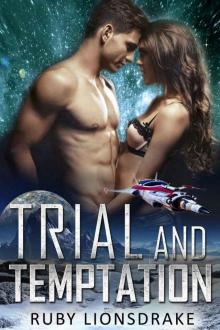 Trial and Temptation (Mandrake Company)
Trial and Temptation (Mandrake Company)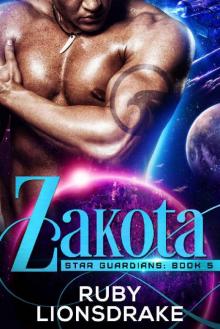 Zakota
Zakota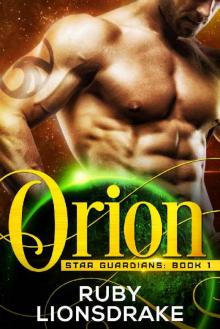 Orion: Star Guardians, Book 1
Orion: Star Guardians, Book 1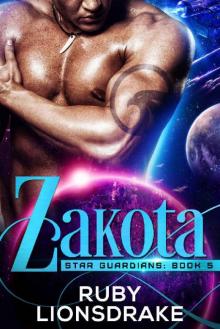 Zakota: Star Guardians, Book 5
Zakota: Star Guardians, Book 5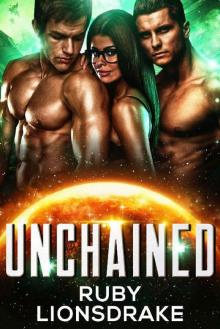 Unchained_ A science fiction romance adventure
Unchained_ A science fiction romance adventure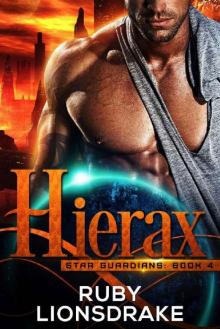 Hierax: Star Guardians, Book 4
Hierax: Star Guardians, Book 4 Frost Station Alpha 1-6: The Complete Series
Frost Station Alpha 1-6: The Complete Series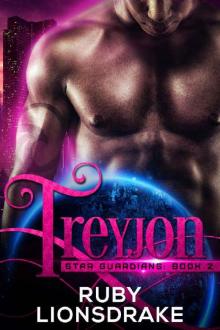 Treyjon: Star Guardians, Book 2
Treyjon: Star Guardians, Book 2 Sagitta: Star Guardians, Book 3
Sagitta: Star Guardians, Book 3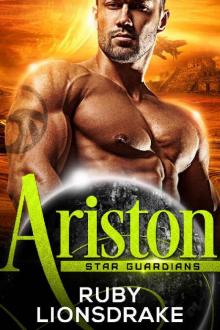 Ariston_Star Guardians
Ariston_Star Guardians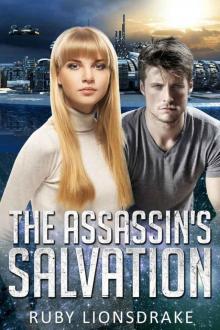 The Assassin's Salvation (Mandrake Company)
The Assassin's Salvation (Mandrake Company)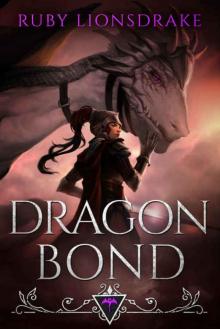 Dragon Bond
Dragon Bond